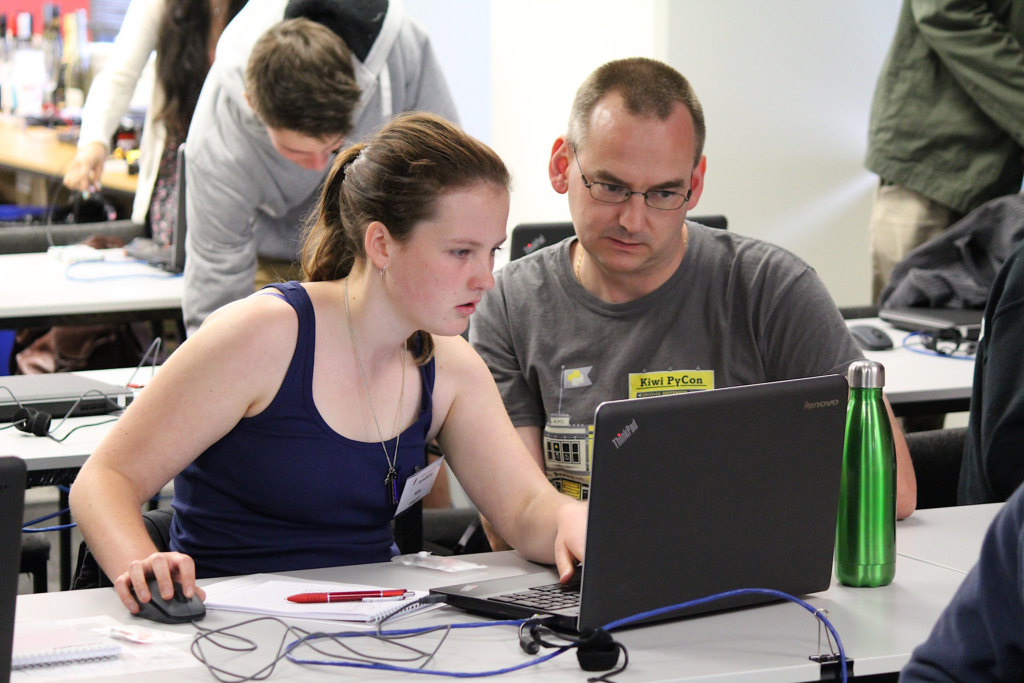Newsletter 6 December 2023: Problematic motivations; infinite suckage; TaylorSwift.ai?

Newsletter 21: Challenges beat bribes to get problems solved, cheaper audiobooks, Michael Lewis’ antiheroes, woman of the year, plus three people to follow, three books to read, and a holiday discount on the top manual for authors.
How to motivate smart people
I love to solve problems. I have always loved to solve problems.
I’m not alone. The most interesting and productive people in your organization are problem-solvers, too.
Marketers solve problems. “How can we find buyers? What would it take to get people to click? Which variables are making the difference?”
Writers solve problems. “What is the best way to keep people’s interest and explain things?”
Coders solve problems. “How can I get this machine to do this cool thing? Why is a problem occurring and how can we fix it?”
Designers solve problems. “What’s the best way to make this both beautiful and clear?”
Salespeople solve problems. “How can I find someone who ought to buy and show them that it’s in their best interest to do so?”
And managers solve problems. “How can I get these people to work together productively?”
You get the idea.
So what does it take to keep a problem-solver motivated? It’s not money. Sure, you have to pay them enough for a decent living, but true problem-solvers are not coin operated. They’re challenge-driven.
This is what you need to motivate a problem solver:
- A constant supply of interesting problems to solve. Problems that are hard, but not too hard. A mix of short-term challenges and long-term projects is good.
- Enough time and support to be able to solve the problems. If you set us up to fail, we’ll lose interest.
- Low noise. As few meetings and distractions as possible.
- Appreciation. Notice when problems are solved well and publicly recognize success.
- An attitude of niceness, including managers. Nobody is a good problem-solver in a hostile environment.
- A diverse collection of people to work on the problems with. If they’re all the same as we are, we’re more likely to compete. If their skills are complementary, we begin to feel like a team.
- A worthy goal. We like to solve problems that matter, like building something great, or making the world better, or making people’s lives easier, or creating beauty and awe. Whether you’re replacing cracked windshields or designing AI search algorithms, if you can point to what you did and say, “See, things are better now,” you’re going to be far more motivated.
I’m a freelancer now, so I solve client problems. If the clients are free of irrelevant bullshit, appreciative, friendly, and diverse and if their problems are interesting, solvable, and worthwhile, I’ll do whatever it takes to succeed. If it they’re not, I’m far less interested, regardless of how much it might pay.
Problem-solvers in regular jobs are like this, too. They don’t usually get to pick their tasks, but they’ll be far more productive if you motivate them with the right kind of problems and people to work with.
Here’s the clever part. In my experience, great problems solvers aren’t actually that picky. They can motivated by just about anything. They love variety, so long as the work is rewarding. That means your organization can motivate them just by positioning the work as a constant stream of interesting problems for them to solve.
If you can do that, amazing things will happen.
News for authors and others who think
There are alternatives to Amazon’s Audible for audiobooks. The Wall Street Journal recommends checking out Libby, Spotify, and libro.fm. I’d add Chirp as well.
Bestselling author Michael Lewis excels at telling the story of underdog heroes, like Moneyball protagonist Billy Beane. What happens when his underdogs are fraudsters like FTX’s Sam Bankman-Fried? Check out David Roth’s review of Going Infinite in New York Magazine.
Taylor Swift is TIME’s Person of the Year. If this were a movie, we’d soon find out that she’s actually an evil genius. Luckily, the scriptwriters who created the reality of 2023 were so distracted with AI plot twists that she may escape that fate. Unless Taylor is actually . . . nah, that’s impossible.
Three people to follow
Maribel Lopez, longtime independent analyst and current AI expert.
Scott Brinker, VP of platform ecosystem at Hubspot and publisher of vastly detailed charts of marketing tool vendors at chiefmartec.com
David Deal, marketing whiz and brand philosopher brimming with new insights.
Three books to read
Trustworthy: How the Smartest Brands Beat Cynicism and Bridge the Trust Gap by Margot Bloomstein (Page Two, 2021). How companies can regain trust in a world full of scoundrels.
Branding Is Sex: Get Your Customers Laid and Sell the Hell Out of Anything by Deb Gabor (Lioncrest, 2016). How marketers can “get their sexy back.”
Jugaad Innovation: Think Frugal, Be Flexible, Generate Breakthrough Growth by Navi Radjou, Jaideep Prabhu, and Simone Ahuja (Jossey-Bass, 2012). Using whatever tools are available to create quick and dirty — but creative — breakthroughs.
Pluggy holidays — what a book deal!
If you’re planning on writing a book next year (or know somehow who is), my comprehensive guide Build a Better Business Book is on sale for the holidays: and that includes the ebook, too.
Get 23% off the paperback here (use code “author” at checkout).
Get the Kindle ebook for an amazingly cheap $3.99 at Amazon.
(While I’d love to discount the audiobook, Amazon won’t let me — but you can still buy it at the regular price.)
These deals will end on December 15, so you might as well get your copy now.
